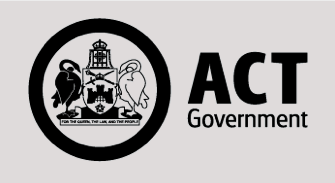
- order the prosecutor and the accused person’s legal representative to attend a pre-trial conference or take other measures on a ‘without prejudice’ basis to attempt to agree on the evidence to be admitted at trial; and
- allow the court to dispense with the formal requirements of proof for matters that were not disputed in the course of pre-trial disclosure, hearings or conferences.
Each of these reflects powers provided in other Australian jurisdictions.
As to pre-trial disclosure of expert evidence, the ACT is the only jurisdiction in Australia where accused persons are not required to disclose expert evidence to the DPP prior to the commencement of a trial.
As a jurisdiction, we must do better.
I have been working for some time with the Magistrates Court and the profession generally to reform listing procedures in the Magistrates Court. There is general agreement that the formation of a separate bail list – and the consequent reduction in the number of “A” lists – is desirable, as is reform of the case management hearing system. Progress of these matters has not been speedy, but it is hoped that in the next year there will be substantial progress.
It is now some time since the recommendation by Dr Hawke in his review of the ACT Public Service recommended the direct appropriation of my office. The government has supported the establishment of the Auditor-General, the Electoral Commissioner and the Ombudsman as officers of the Parliament achieving fiscal independence for them and confirming their independence. This means that of the four bodies identified by Dr Hawke as part of the foundation of the ACT system of government, my office is the only one which is yet to be dealt with.
Following Dr Hawke’s recommendation there has been a move to a “one department” model within the ACT Public Service. This leaves my office in somewhat of an anomalous position. Appropriation for my office is channelled through one of the directorates of the one department notwithstanding that there is a lack of any synergy between the operational aims of any of the directorates and my office. (To exemplify this, while appropriation to DPP is channelled through JACS, of the 23 priorities of JACS for the 2013–2014 budget estimates, not one relates to the operation of my Office.) For similar reasons, communication on funding issues is complicated by having to be channelled through a directorate. Part of the funding currently appropriated for my office is directed to meeting the corporate overheads of JACS. It would make far better sense fiscally for my office to be directly appropriated so that it could deal directly with entities external of JACS such as Shared Services.
The government is currently considering this issue and hopefully the benefits of securing the independence of my office as Dr Hawke has recommended will outweigh any perceived disadvantages. The transition of the other three bodies mentioned was able to take place without significant resourcing implications, and there is no reason it would be any different for my Office.
One area of recent reform likely to have a significant impact upon the work of the Office is work safety. The Work Health And Safety Act 2011 was part of complementary legislation in all Australian jurisdictions to provide for a balanced and nationally consistent framework to secure the health and safety of workers and work places. Consistent with that initiative, the government has moved to establish an Industrial Court jurisdiction when the Magistrates Court is constituted by the Industrial Court Magistrate and in other specific circumstances. The most recent budget provided for funds for the implementation of recommendations of the Getting Home Safely report, including the provision of 12 additional work safety inspectors. The increase in work safety inspectors, and| |
||||
| viii ¦ | DIRECTOR OF PUBLIC PROSECUTIONS ANNUAL REPORT 2012-2013 | |||
| ← Previous Page | Next Page → | |||

